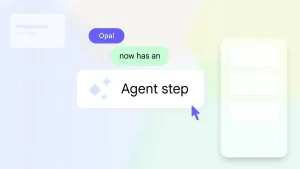OpenAI Shuts Down Election Influence Operation That Used ChatGPT

OpenAI has taken a significant step in securing the upcoming U.S. presidential election by banning ChatGPT accounts involved in an Iranian influence operation. The tech company’s proactive move highlights the evolving threats posed by AI-generated content.
This operation produced AI-generated articles and social media posts, aiming to influence public opinion on key political topics. However, it didn’t seem to reach a large audience, marking a cautious win in the fight against misinformation. OpenAI’s actions demonstrate their ongoing commitment to preventing malign use of generative AI technology.
Background of the Operation
OpenAI revealed that it had banned several ChatGPT accounts connected to an Iranian-backed influence operation. This operation focused on generating content related to the U.S. presidential election. It utilized AI to craft articles and social media posts, aiming to sway public opinion on critical issues.
Notably, this isn’t OpenAI’s first encounter with state-affiliated actors using ChatGPT for malicious purposes. The company’s vigilance in identifying and shutting down such operations underscores the challenges posed by AI in the digital age.
In May, OpenAI disrupted five other campaigns that were also leveraging ChatGPT to manipulate public perceptions. These instances echo previous attempts by state actors to influence elections via social media platforms like Facebook and Twitter.
Operation Tactics and Objectives
The Iranian influence operation, known as Storm-2035, had been active since 2020. It operated multiple sites that mimicked news outlets and engaged U.S. voter groups with polarizing messages on topics like presidential candidates, LGBTQ rights, and the Israel-Hamas conflict. The goal was not to promote a specific policy but to create dissent and conflict.
A variety of convincing domain names, such as “evenpolitics.com,” were used to present these sites as legitimate news sources. This operation’s playbook was clear: sow discord without advocating for any particular side, fostering division within the U.S. electorate.
Use of AI in the Operation
Storm-2035 used ChatGPT to draft numerous long-form articles, including false claims about political figures. One notable example is the article alleging, “X censors Trump’s tweets,” which was completely baseless.
On social media, the group controlled a dozen X accounts and an Instagram account, utilizing ChatGPT to rewrite political comments. These were posted to deepen divisions within voter groups. Posts included a misleading tweet about Kamala Harris blaming “increased immigration costs” on climate change, followed by the hashtag “#DumpKamala.”
OpenAI, however, noted that most of the content generated by Storm-2035 didn’t gain much traction. The majority of posts saw few likes, shares, or comments, indicating a limited impact. This observation aligns with the general pattern of such operations, which are often quick and inexpensive to execute, thanks to AI tools.
Role of Microsoft Threat Intelligence
OpenAI’s efforts were bolstered by a report from Microsoft Threat Intelligence, which had identified Storm-2035. Microsoft described the group as a network with several sites pretending to be news outlets, engaging both progressive and conservative voter groups with controversial messaging.
Microsoft’s identification of Storm-2035 enhanced OpenAI’s ability to pinpoint and dismantle the network’s online presence. This collaboration demonstrates the importance of tech industry partnerships in combating complex threats like AI-driven misinformation campaigns.
Challenges Ahead
Despite OpenAI’s success in shutting down these accounts, the threat of AI-generated election interference remains. The ease with which AI tools can create convincing content means that similar operations will likely continue to emerge, especially as the election approaches.
OpenAI and other tech companies must remain vigilant and develop more sophisticated detection methods. The evolving nature of these threats requires constant adaptability and innovation to stay ahead of malicious actors.
Future Implications
As generative AI technology continues to advance, its potential misuse becomes a growing concern. Preventing AI from being used to manipulate public opinion is a significant challenge facing tech companies and regulators alike.
Moving forward, it will be crucial to balance the benefits of AI advancements with the need to safeguard democratic processes. Collaborative efforts between tech companies, governments, and other stakeholders will be key to addressing these challenges effectively. This incident serves as a reminder of the pressing need for robust AI governance frameworks.
Conclusion
In conclusion, the shutdown of the Storm-2035 operation by OpenAI underscores the critical role AI can play in both positive and negative contexts. The ongoing battle against AI-generated misinformation will require constant vigilance and collaboration among tech companies.
As the U.S. presidential election approaches, it is vital for all stakeholders to be aware of the potential threats posed by AI and to work collectively to counteract them. OpenAI’s actions mark an important step in protecting the integrity of democratic processes.
The shutdown of the Storm-2035 operation highlights the challenges and responsibilities faced by tech companies in the AI era. Vigilance and collaboration are essential in combating AI-generated misinformation.
As the next U.S. presidential election nears, ongoing efforts to detect and disrupt similar influence operations will be crucial. OpenAI’s proactive approach sets a precedent for how the tech industry can contribute to safeguarding democracy.





